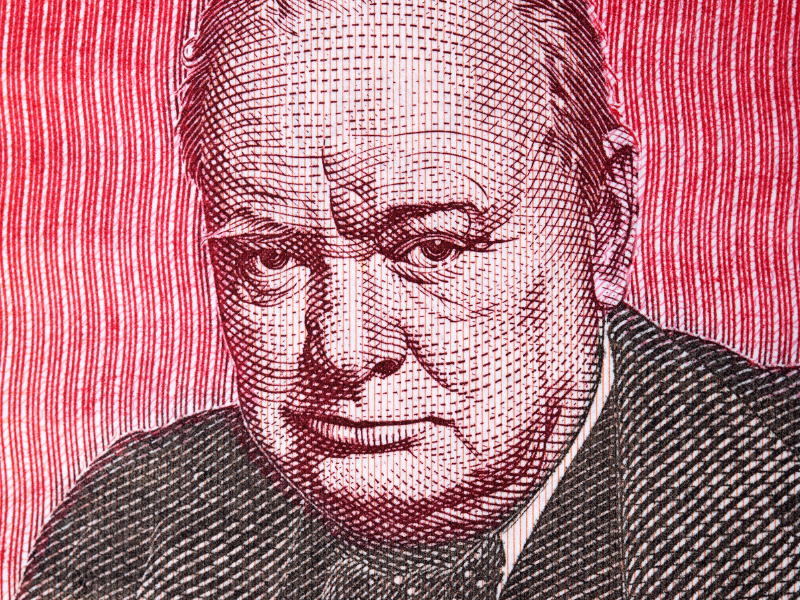What Churchill had to say about the French
Churchill describes French society and, more specifically, the French.

I would like to share with you some of Churchill’s thoughts about French culture. In a short guide intended to be used by British troops, specially written to prepare them for what they would find in France after the D-Day landings in 1944, Churchill gave a description of France at that time, of French society and particularly of the French.
French/British
We should keep in mind that Churchill was very pro-French. He learned French when he was young and his maternal grandmother, an American and a Francophile, had spent several years in France admiring the pomp and splendour of Napoleon III’s court in the 1860s. His most distant ancestors on his mother's side were Huguenots and also French.
France therefore appealed naturally to Churchill. We find this in his writings, his keen sense of observation, his rational thinking, his discernment and his pragmatism. I have taken four passages from this book, which I have accompanied with a brief cultural commentary.
This is what Churchill had to say about the French.
Property and individualism in France.
"The first of these general observations concerns their attachment to the land. Before the war, more than half the population lived on the land or in small villages. Almost all country people but also some townspeople own and farm a small plot, even if they also work for an employer. This attachment to property has led the French to become focused on individualism, strengthened by the fact that even if there are major industries established in France, there are very many small factories and independent craftsmen".
Churchill consequently saw us as being solidly attached to the land, to our own little plot, like a vine with deep roots reaching several metres into the soil. A nation of country people with as many regions as it has cheeses. Attached to our detached house whereas the British readily inhabit a terraced house, which is by far the most commonplace form of accommodation in Great Britain, and are only rarely property owners. More influenced by an industrial past than by the notion of individual property, the British are more independent than individualistic, marked by centuries of travel across the seas and exploration of the world.
Equality and French republican idealism
"Class distinctions are not particularly visible in France. The French Revolution has largely swept away the former social classes and its keywords of "Liberty, Equality, Fraternity" have reduced social snobbery to a minimum. Every Frenchman likes to consider himself the equal of his neighbour and would feel insulted if a stranger did not call him ‘Monsieur’."
The same applies concerning republican idealism, which eliminates all social references and instead favours the principles of equality, of which everyone is regularly reminded throughout the educational system. Here, we are far from the British, who are more pragmatic and have always noted the existence of social classes, each with their own different lifestyles, education and accommodation types. However, noting this should not be seen as an obstacle to professional advancement. Merit takes precedence over birth status in the United Kingdom. There is certainly no republican ideal of equality but rather professional reality which gives everyone as many opportunities as possible
French attitudes to authority
"However, the French dislike authority. The Germans have learned this the hard way. Faced with a uniform or a rule, their first reaction is not to blindly obey but rather to question whether it is necessary and to make disobliging remarks if they consider it isn't. This is a result of their faith in the individual. The average Frenchman is convinced of his right to think for himself and to express criticism openly".
This will certainly surprise the British! Convinced of the need to follow the rules, they generally avoid verbal excesses and their natural courtesy and distant reserve means that they only rarely express firm viewpoints or their preferences on issues. The only exception is when they have consumed several pints down the pub and tongues become looser! It is doubtless here that one may get to know them better.
The French appreciation of art
"Less focused on industrialisation than ourselves, the French have destroyed fewer of their finest buildings in the name of progress. Indeed, the average Frenchman is often more sensitive to art than the British are".
Here we see the French being described as fond of art and sensitive to the finer things in life, strongly attached to our heritage, more easily impressed by craftsmanship or scientific innovation when this is combined with the aesthetic beauty of form and modernity, with ancestral skills being highly valued. Britain on the other hand has often put industry before art, with profit and pragmatism taking precedence.
To conclude, as well as being a true politician and military man, we should also recognise Churchill's skills for intercultural commentary. Displaying a flair for observation, a willingness to listen and a knowledge of the country and its culture, with this manual he gives us a pragmatic and relevant account of French culture of the day, with all the eloquence for which he is renowned.
